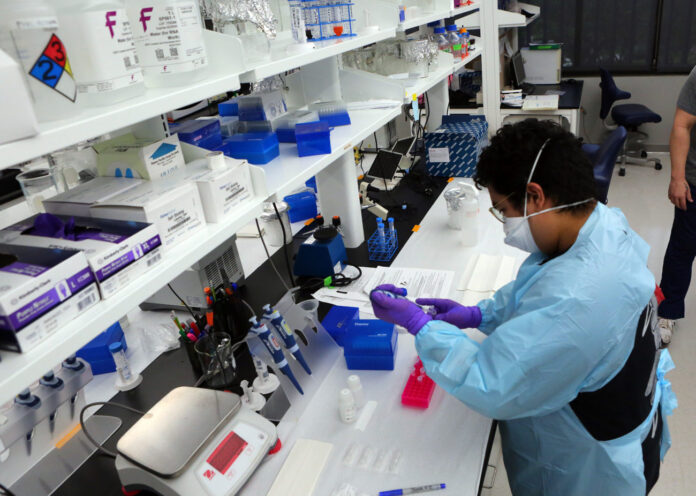The Brownsville City Commission and mayor on Tuesday approved an item that awards a contract to the University of Texas School of Public Health (UTSPH) for Laboratory Services in the amount of $468,000 to be paid for by CARES funding.
This contract will allow for UTSPH to develop a CLIA Certified Laboratory in Brownsville. Other partners in this initiative include Cameron County, City of Harlingen, City of South Padre Island, and governmental entities.
“The LRGV has limited lab capability and the creation of this lab is an investment not only for COVID-19 Testing but other potential Public Health Crisis,” Public Health Director Art Rodriguez said in a memo sent to the City Commission and mayor.
“With regards to COVID-19 this will give the City and the region a lab that will provide efficient, effective and quicker test results and expanded testing at a lower price point.”
Ramiro Gonzalez, director of government and community affairs, said during a presentation that having a lab will allow the city to control an outbreak quicker.
He said the lab could not only test for COVID-19, but for several other conditions such as botulism, diphteria, hansen’s disease, hepatitis, HIV and STD’s, influenza, lead poisoning, measles, meningococcal infection, plague, polio, rabies, smallpox, vancomycin resistance, yellow fever, respiratory pathogens and enteric pathogens.
“Having a lab here in Brownsville that can do this kind of work puts us in an advantage,” he said.
“At full capacity, this lab could process 7,000 swabs, 11,000 saliva tests or 5,000 antibodies, so if you think about the requirement for testing, and testing being the proven solution, having this capacity would put us in an advantage like no other city.”
Gonzalez said that even though there are not a lot of research articles on the importance of testing, the research that is available at this point shows that testing is vital to control an outbreak.
“It all comes back to testing, you have to have good testing to get the economy back and running,” he said.
“And to be able to attack an outbreak, once you do get an outbreak, if you have a 24-hour or a 48-hour response time, you’re going to be able to close that circle really quick.”
The lab in Brownsville will also reduce costs to $50 from $110 for SARS CO-V2 swab test, $10 from $110 for saliva test at UTRGV and to $10 from $15 for the antibody test.





